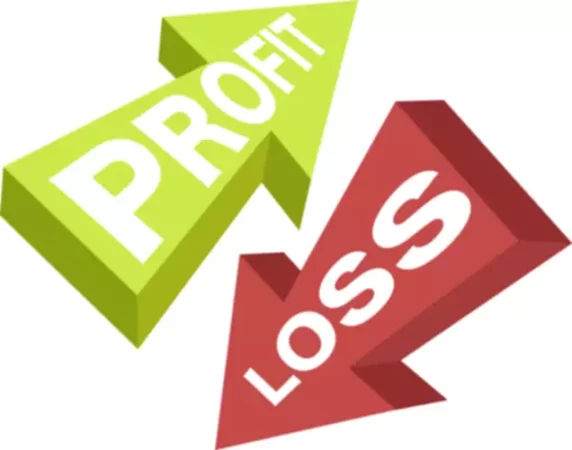
Our editors will review what you’ve submitted and determine whether to revise the article. It was one of the conservative sheets, comic-less, reactionary Republican to the core. The man called Shiv was driving Delancy’s get-away car at a conservative pace so as not to excite suspicion.
- In politics, the word left is applied to people and groups that have liberal views.
- This preference has traditionally rested on an organic conception of society—that is, on the belief that society is not merely a loose collection of individuals but a living organism comprising closely connected, interdependent members.
- When we discuss the origins of words, we often warn against origin stories that sound too good to be true.
- The epithet conservative or liberal is used to describe political and economic views and affiliations.
Russell Kirk’s principles of conservatism
For Burke and other pro-parliamentarian conservatives, the violent, untraditional, and uprooting methods of the revolution outweighed and corrupted its liberating ideals. The general revulsion against the violent course of the revolution provided conservatives with an opportunity to restore pre-Revolutionary traditions, and several brands of conservative philosophy soon developed. Conservatism is a preference for the historically inherited rather than the abstract and ideal. This preference has traditionally rested on an organic conception of society—that is, on the belief that society is not merely a loose collection of individuals but a living organism comprising closely connected, interdependent members. Conservatives thus favour institutions and practices that have evolved gradually and are manifestations of continuity and stability.
t-century policies
This was probably because the neocons have dwindled to a vanishingly small minority that used up all their political capital in the War on Terror a decade earlier. They are no longer really conservative, and neither the libertarian or traditionalists would support their agenda in any meaningful way. Liberals believe in universal access to health care; they believe personal health should be in no way dependent upon one’s financial resources, and support government intervention to sever that link. Political conservatives prefer no government sponsorship of health care; they prefer all industries to be private, favor deregulation of commerce, and advocate a reduced role for government in all aspects of society.

Political views and Core Beliefs

In terms of views on social issues, conservatives oppose gay marriage, abortion and embryonic stem cell research. Liberals on the other hand, are more left-leaning and generally supportive of the right of gay people to get married and women’s right to choose to have an abortion, as ruled by the U.S. Beyond these points, curiously little was mentioned about conservatives who favor foreign intervention and maintaining America’s role as the world’s police—a group that has often been called the neoconservatives.
Government’s responsibility is to be the servant, not the master, of existing ways of life, and politicians must therefore resist the temptation to transform society and politics. This suspicion of government activism distinguishes conservatism not only from radical forms of political thought but also from liberalism, which is a modernizing, antitraditionalist movement dedicated to correcting the evils and abuses resulting from the misuse of social and political power. The different schools of economic thought found among conservatives and liberals are closely related to America’s anti-federalist and federalist history, with conservatives desiring little to no government intervention in economic affairs and liberals desiring greater regulation. Furthermore, libertarian conservatives were directly complicit in empowering the Chinese Communist Party for decades, largely at the cost of hollowing out middle America. The prevailing view was that more economic opportunity and foreign investment in China would liberalize the country. In reality, it has mainly enriched a totalitarian state that regularly violates their people’s human rights, sponsors evil dictatorships like that of North Korea, poses serious threats to global security in general, and likely exported Covid along with its many other products.
Factoring in the ongoing changes in politics and the world in general, I believe the new fusionism will be a coalition of traditional populists and classical liberals. This is especially true for the libertarian wing of the conservative movement that, as Andrews mentioned, proved weak and hypocritical in the face of the totalitarian Covid regime of the last two years. Rather than object and push back against the abundant violations of people’s civil rights, many of their writers joined in the derision and mockery of traditionalists who questioned what was clearly unscientific hysteria.
In the US, people often use left as a shorthand for the Democratic Party and right as a shorthand for the Republican Party. But keep in mind that politics is always far more complicated than the labels we give to it—and each other. The term far right is often used for more extreme, nationalistic viewpoints, including fascism and some oppressive ideologies.
People and groups, as well as their positions, are collectively referred to as the Right or the right wing. In the United States, “conservative” is often used very differently from the way it is used in Europe and Asia. Following the American Revolution, Americans rejected the core ideals of European conservatism, which were based on landed aristocracy, hereditary monarchy, established churches, and powerful armies. What conservative parents who opposed this are arguing is to rewrite history and we are arguing to teach history as it happened. The origin of the political left and right do actually have to with the physical directions, left and right.
They believe government should be in no way involved in one’s healthcare purchasing decisions. In politics, the word left is applied to people and groups that have liberal views. That generally means they support progressive reforms, especially those seeking greater social and economic equality.
Although the two writers come from opposing perspectives—Andrews is the editor at The American Conservative, while Dougherty is an editor at National Review—there was much more agreement than one might expect. As with the old fusionism, the new fusionism will be defined by its circumstance not really by its ideologues. They’re poised to renominate President Donald Trump and Vice President Mike Pence to represent their party in the November election.
It was not until the late 18th century, in reaction to the upheavals of the French Revolution (1789), that conservatism began to develop as a distinct political attitude and movement. The term conservative was introduced after 1815 by supporters of the newly restored Bourbon monarchy in France, including the author and diplomat Franƈois-Auguste-René, vicomte de Chateaubriand. In 1830 the British politician and writer John Wilson Croker used the term to describe the British Tory Party (see Whig and Tory), and John C. Calhoun, an ardent defender of states’ rights in the United States, adopted it soon afterward.
Jerry Falwell in the 1980s preached traditional moral and religious social values. Honestly though, I believe very few people hold these singular views so completely. That being said, the media is trying very hard to pull us into their struggle for viewership ratings.
They endorse the contraction of governmental involvement in non-commercial aspects of society as well, calling upon the private sector to assume their activities. Conservatives call for the devolution of powers to the states, and believe locally-tailored solutions are more appropriate to local circumstances. They promulgate individual responsibility, and believe a strong society is made up of citizens who can stand on their own. Conservatives believe in the importance of stability, and promote law and order to protect private property. Political liberals believe that parties motivated by self-interest are willing to behave in ways that are harmful to society unless government is prepared — and empowered — to constrain them. They believe regulation is necessitated when individuals, corporations, and industries demonstrate a willingness to pursue financial gain at an intolerable cost to society—and grow too powerful to be constrained by other social institutions.
Liberals believe in systematic protections against hazardous workplaces, unsafe consumer products, and environmental pollution. They remain wary of the corruption — and historic abuses, particularly the oppression of political minorities — that have taken place in the absence of oversight for state and local authorities. They believe the public welfare is promoted by cultivating a widely-tolerant and -permissive society. In other word, people who consider themselves in the center favor moderate positions—those not too far toward either end of the spectrum. Center-left refers to people, groups, or views that are just to the left of the political center in a country. Of course, these labels and their interpretations are subjective and vary from person to person and place to place.
In the early part of the twentieth century, liberals – especially those in Britain – were those who stood for laissez fair capitalism. The exception to this is found in Australia, where the mainstream conservative party is called the Liberal Party and the mainstream non-conservative party is called the Labour Party. Economic conservatives believe that the private sector can provide most services more efficiently than the government can. They also believe that government regulation is bad for businesses, usually has unintended consequences, and should be minimal.

